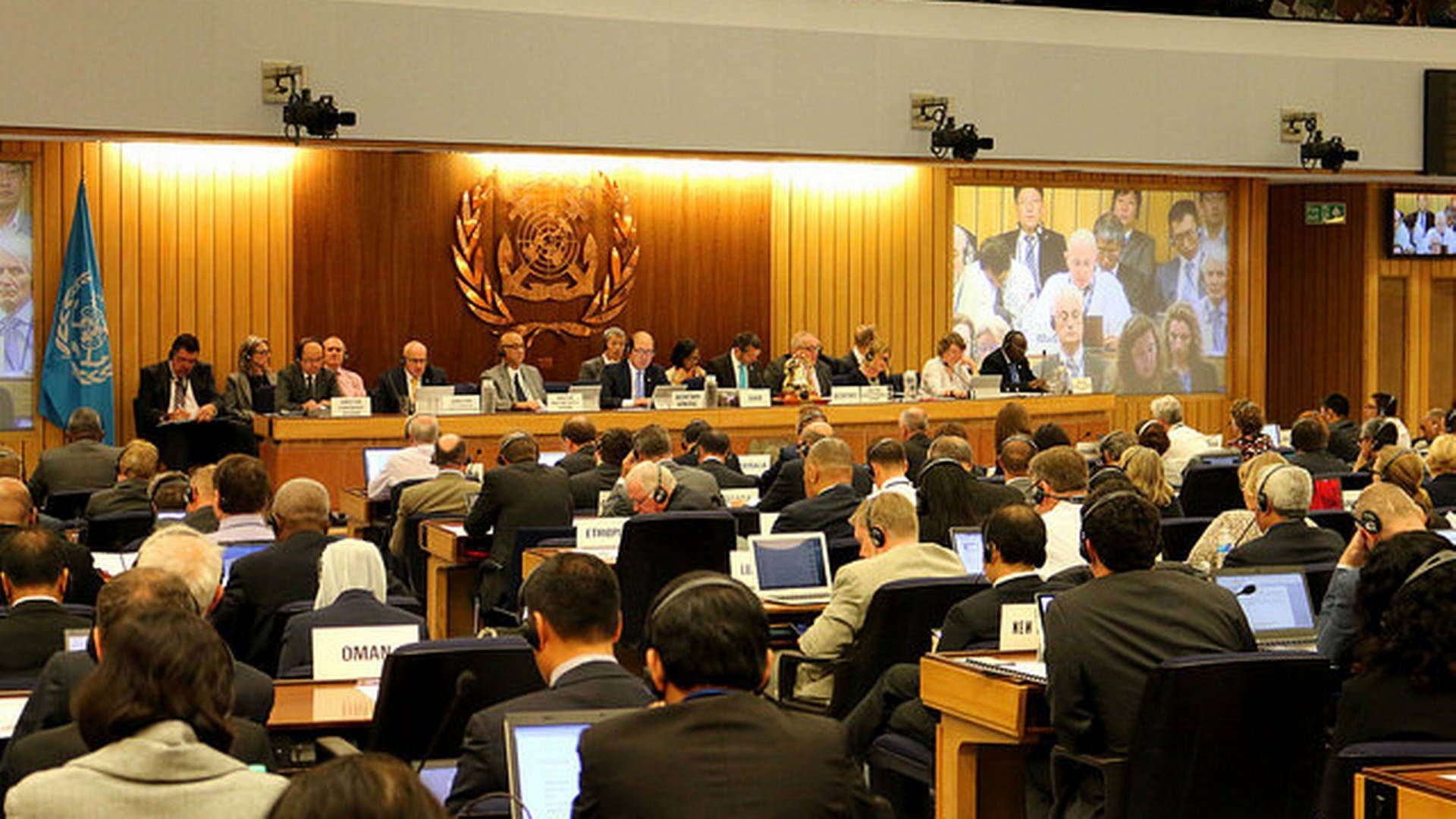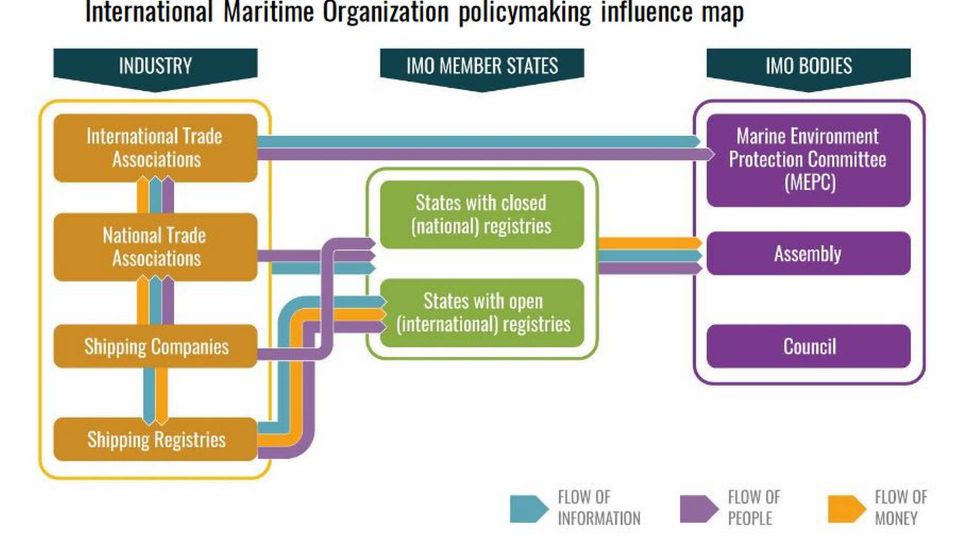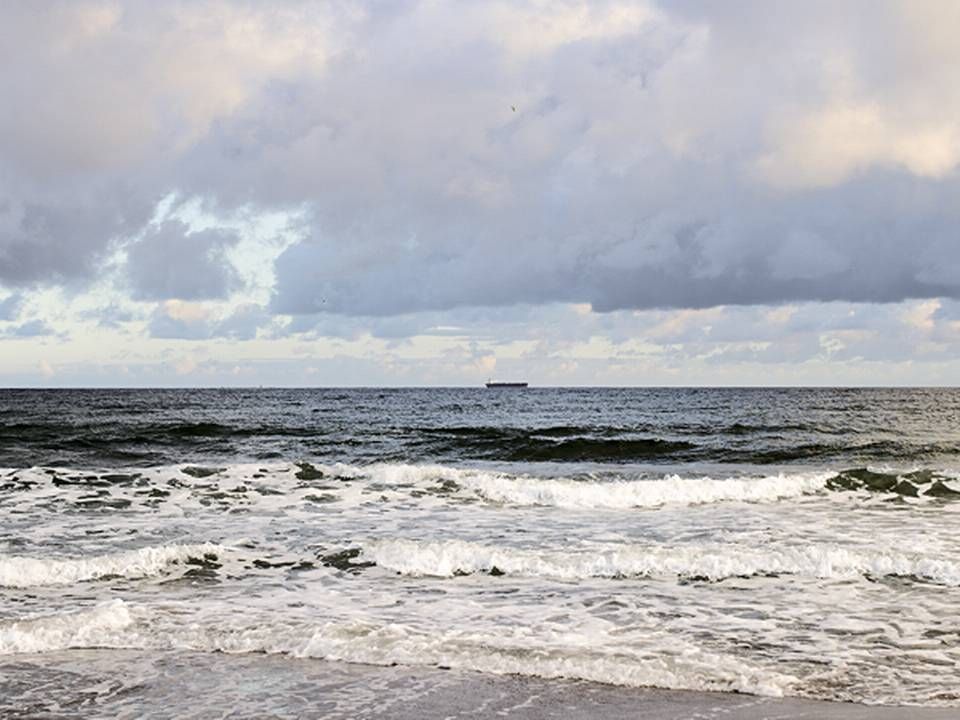Powerful shipping lobby accused of undermining CO2 reductions

How does the shipping industry continue to avoid climate regulations while all other industries are regulated at the international level?
A new report blames the power dynamic between various governments, shipowners, the three major international shipowners' associations, and the UN's maritime organization (IMO).
Secondly, this influence is reflected in the maritime industry's delayed efforts to implement CO2 reduction targets and thus contribute to the battle against global warming.
UK non-profit InfluenceMap carried out the report, issued Monday morning, just as the IMO launches a week-long meeting at its headquarters in London to negotiate shipping's reduction targets. Unlike other industries, shipping has thus far managed to escape a globally-binding agreement on CO2 reductions.
The goal, however, is for this week's meeting to result in a more concrete roadmap for how shipping can reduce CO2 emissions.
Lobbies collectively delay regulation
The report says the three major international shipping organizations are the most powerful forces in undermining a CO2 shipping plan.
"Progress on regulation has been stalled by powerful shipping trade associations, with the International Chamber of Shipping (ICS) leading efforts to oppose action on climate change at the IMO," writes InfluenceMap in the report, adding:
"ICS, alongside BIMCO and the World Shipping Council, have collectively lobbied to delay implementation of any climate regulations until 2023 - even then refusing to support anything but voluntary regulations that may not reduce the sector's overall greenhouse emissions."
Maritime sector strongly represented
The lobbies' success in delaying the implementation of climate regulations is attributed to the fact that the organizations are strongly represented in the IMO because of the industry's extensive presence at organization meetings.
"This research has further uncovered that at the most recent IMO environmental committee meeting 31% of nations were represented in part by direct business interests. The IMO appears to be the only UN agency to allow such extensive corporate representation in the policy-making process," writes InfluenceMap.
According to report data, the most recent meeting of the IMO's Marine Environmental Protection Committee (MEPC) in July of this year, where ShippingWatch was present, 20 countries – 20 percent of the 100 participating nations – were directly represented by national shipping organizations.

Source: Influence Map
International shipowners' associations are highly active when it comes to pushing policy, also when measured by their participation in, for example, submitting proposals ahead of discussions. While all countries have a right to this, not all countries carry it out.
"In 2015-17 ICS, BIMCO and WSC submitted a total of 17 policy documents on climate-related issues at MEPC meetings," reads the report, adding:
"This collectively translates to 11.2% of all identified non-secretariat submissions to the IMO related to climate change from 2015-17, a figure higher than every other state except Japan, Germany and Denmark. Such a high percentage suggests industry associations are active and influential contributors to IMO negotiations on climate change."
The IMO has received criticism from others recently as well. Several NGOs stated ahead of this week's meeting that shipping has polluted more in recent years than before and that the growing CO2 emissions could be reduction with measure including slowsteaming.
English Edit: Lena Rutkowski
New climate battle to take off at the IMO next week




















